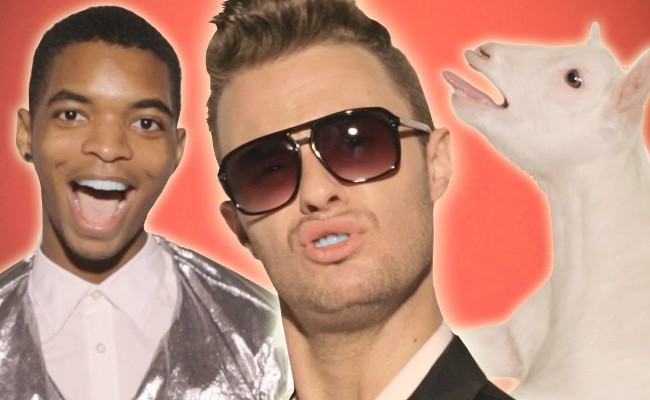The opening beats to ‘Blurred Lines’ provoke eye-rolling, mumbles or shouts about its misogynistic content. Think about all the times you’ve changed the radio station the second you hear those opening bass beats and cowbell rattles. Now think about all the times you’ve danced or sung along to another song, without stopping to consider its content.
Recently, Robin Thicke and Pharrell Williams made the news again by losing a court case against Marvin Gaye’s family ‘Blurred Lines’. Gaye’s family sued Thicke and Williams for copying the 1977 song ‘Got To Give It Up’. This led to another rise in attacks on them for ‘not getting consent’.
‘Blurred Lines’ comes under a lot of fire for being sexist, including rape connotations, in part because of the artists’ own personal lives. The song was banned in several universities in the UK because it promoted date rape. Okay, it’s not great that such a song was so ridiculously popular. Domestic violence and rape are not things to profit from via catchy music. But ‘Blurred Lines’ is not the only perpetrator of misogyny in music. Misogyny is rife in contemporary popular music and it’s not something we should be proud of. Far too many artists do exactly what Thicke did and go unpunished.
Take Kanye West for example. In 2012 he released the song ‘Monster’, which depicted sexualised violence against women. It included lines like ‘she claiming that I bruise her oesophagus’. It hints at both a lack of consent and the fact that women who ‘claim’ to have been sexually assaulted or abused are often accused of lying. The video – which MTV censored for viewing – depicted women as zombies, naked or in their underwear. In some scenes West rearranges these bodies in ways that are perhaps more confronting than Thicke’s video. Then in 2013, his album Yeezus was released to critical acclaim. It included several songs hinting at misogyny or rape, such as in ‘Hold My Liquor’: ‘Bitch I’m back out my coma, waking up on your sofa … One more hit and I can own ya, one more fuck and I can own ya.’ Yet Lou Reed referred to the song as ‘heartbreaking’. Some thought Yeezus was an extremely misogynistic ten songs. But this went largely unnoticed because ‘Blurred Lines’ was being attacked for misogyny, and so, the attention was elsewhere.
This is not a theme restricted to ‘mainstream’ music either. Radiohead’s ‘Creep’, which was poorly received upon its first release, is filled with connotations of sexual assault and unwanted sexual advances. ‘I don’t care if it hurts / I wanna have control … She’s running out the door / She’s running out / She run run run run.’
These are only two of the songs that advocate what people attack ‘Blurred Lines’ for. In addition there are songs that eroticise and objectify foreign women, songs that treat women like animals, and songs that shout ‘shut the fuck up’ at women who might say no. So why is it so easy to hate Robin Thicke?
Is it because the song was popular? Thicke’s album Blurred Lines peaked at number 4 on the 2013 ARIA Australian Albums chart. Popular, yes, but Kanye’s Yeezus peaked at number 1 in the same year.
Is it because Thicke ‘stole’ the song from Gaye? Radiohead was sued by Albert Hammond and Mike Hazlewood because ‘Creep’ sounded exactly like ‘The Air That I Breathe’ by The Hollies. Moreover the songs are not even the same.
Is it because Thicke is white? He collaborated with Pharrell Williams and T-I, both of whom are not white. And it is the latter who sings the most confronting parts of the song -‘I’ll give you something big enough to tear your ass in two’; ‘He don’t smack that ass and pull your hair like that’. From another perspective, the members of Radiohead are white, yet they escaped the same criticism we load on Thicke. Although, as I said before, they are not exempt from being sued for infringing on copyright either. The genres are different but that doesn’t mean we should excuse the fact that they still made a song that included themes of sexual harassment.
I am not defending ‘Blurred Lines’ – it’s hard to when there are so many arguments against it. But the sexist nature of its lyrics do not operate in isolation. So many other pieces of music and video clips do the same thing. What is galling is that they get away with it when people are too busy attacking Thicke on Twitter to notice them. Putting every resource into hating one particular song allows the rest to fall through the cracks. How can we berate one song for having connotations of rape or sexual assault, while we celebrate so many others?






